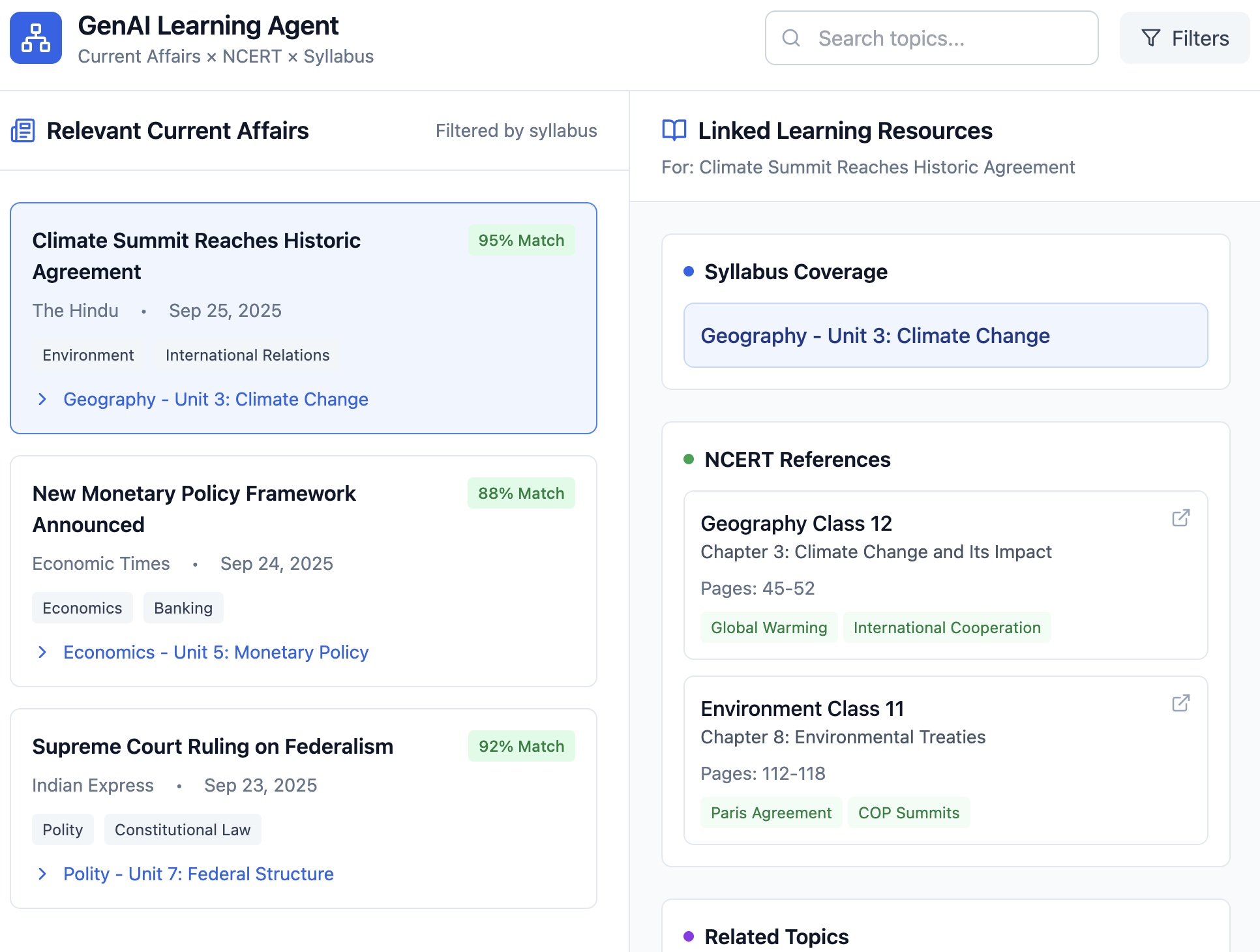FocusPrep AI is a GenAI-powered study assistant that accelerates UPSC preparation by linking syllabus, NCERTs, newspapers, and previous year question papers into a unified knowledge graph. It filters out noise, highlights only syllabus-relevant content, and provides smart linkages, visualizations, and mock questions—helping aspirants learn faster and smarter within strict timelines.

.png)
What challenges or difficulties have I faced with this project?
.png)
.png)
UPSC aspirants struggle with vast content, strict timelines, and dynamic current affairs—making it difficult to filter relevant information and build meaningful connections for effective preparation.
What steps did I take to deal with a complication?
.png)
FocusPrep AI simplifies UPSC preparation by filtering syllabus-relevant content, linking textbooks with current affairs, and generating smart insights—helping aspirants focus, save time, and learn effectively.
.png)
How did my challenges eventually come to a resolution?
.png)
With FocusPrep AI, aspirants gain a clear, connected view of study material, reduce information overload, and improve exam readiness through smarter learning and personalized preparation insights.
.png)
A mini-project on reimagining UPSC preparation using Generative AI
Preparing for competitive exams like UPSC (Union Public Service Commission) is one of the most daunting challenges in India. Every year, millions of aspirants attempt the exam, but only a few succeed.
The difficulty arises from:
When preparing for UPSC, here’s what an aspirant needs to master:
Unlike some exams, UPSC questions are not directly lifted from sources. Instead, they are multi-hop linked:
Example:
If a cyclone hits a coastal city, the exam question may not ask “When did the cyclone occur?”. Instead, it might ask about the culture, geography, or policies relevant to that city—but only if it’s in the syllabus.
So, the key chain is:
Entity/Topic → Syllabus → NCERT or Core References
Too much data overwhelms; the solution is minimalized, relevant information.
Imagine reading the newspaper—
Instead of consuming every article, you only see syllabus-relevant content, and alongside it, you view the connected NCERT references.
Interconnect:
Syllabus Graph ↔ NCERT Graph ↔ Newspaper Graph
This ensures:
✅ Minimal reading, maximal relevance
✅ Faster connections between current affairs & core syllabus
This project is more than just an experiment. It’s a vision:
Turning GenAI into a study companion that accelerates competitive exam preparation, saving time and maximizing focus.
If scaled, this could transform how millions prepare for UPSC and other tough exams across the globe.